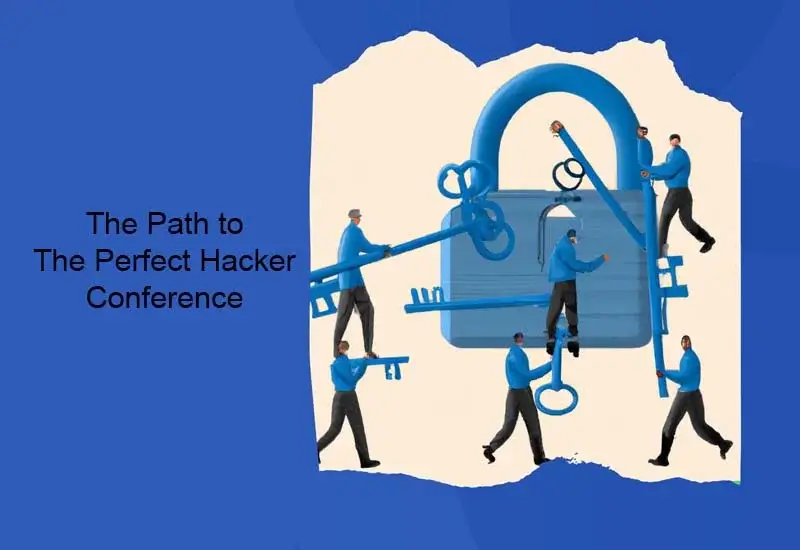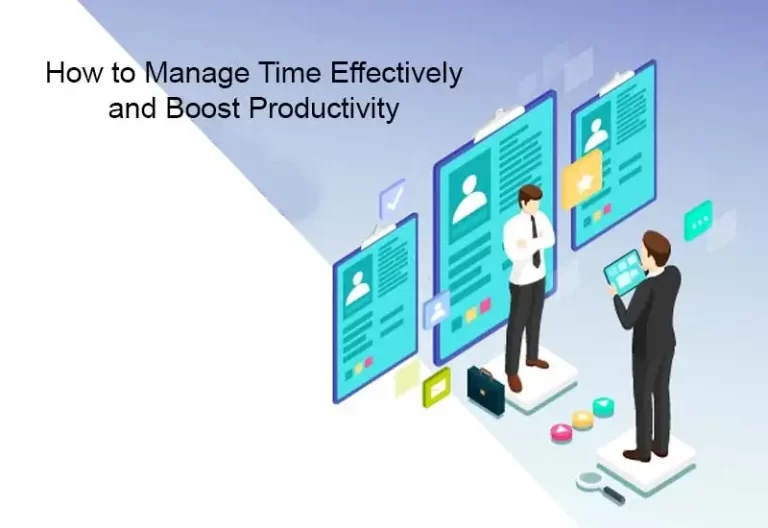The Path to the Perfect Hacker Conference
Hacker conferences have become essential gatherings for cybersecurity professionals, enthusiasts, and ethical hackers. These events provide a unique opportunity to share knowledge, discuss cutting-edge topics, and build networks within the cybersecurity community. With numerous conferences worldwide, choosing the best one to attend in 2023 can be overwhelming. In this comprehensive guide, we will walk you through finding the ideal hacker conference, setting personal objectives, evaluating speakers and presentations, considering practical aspects, and making the most of networking opportunities.
I. Researching Hacker Conferences
A. Understand the Purpose of Hacker Conferences
Hacker conferences are hubs for cybersecurity enthusiasts to learn, collaborate, and advance their skills. Familiarize yourself with the primary objectives of these events, which often include promoting security awareness, showcasing innovative research, and fostering a sense of community among cybersecurity professionals.
B. Explore Previous Noteworthy Conferences
Learn from the experiences of past attendees by exploring reports, blogs, and articles on noteworthy hacker conferences. These insights can help you gauge the quality of the events, the topics covered, and the overall value they offer to participants.
C. Utilize Online Resources and Forums
Engage with the cybersecurity community on online forums, social media platforms, and specialized websites. Seek recommendations and reviews from fellow professionals to gain additional perspectives on different hacker conferences.
II. Identifying Key Criteria
A. Location and Accessibility
Consider the location of the conferences you are interested in attending. Assess the ease of travel and accessibility to the venue, especially if you plan to attend in person.
B. Conference Date and Duration
Check the conference dates and duration to ensure they align with your schedule. Consider any potential conflicts or commitments that might hinder your attendance.
C. Conference Theme and Topics
Review the conference themes and the range of topics covered in the agendas. Choose conferences focusing on cybersecurity areas that match your interests and professional goals.
D. Quality of Speakers and Presenters
Examine the list of speakers and presenters, paying close attention to their expertise and backgrounds. Conferences with renowned experts often provide valuable insights and perspectives.
E. Past Attendees’ Feedback and Reviews
Take the time to read feedback and reviews from previous conference attendees. These testimonials can provide valuable information about the overall experience and the value gained from participating.
III. Setting Personal Objectives
A. Define Your Goals and Interests
Clearly outline your goals for attending a hacker conference. Whether it’s to acquire technical skills, gain insights into the latest trends, or network with industry professionals, having well-defined objectives will guide your decision-making process.
B. Determine Your Budget and Resources
Establish a budget for attending the conference, including registration fees, travel expenses, and accommodation costs. Be mindful of any financial constraints that might affect your choices.
C. Assess Your Skill Level and Knowledge
Honest self-assessment of your current skill level and knowledge will help you select a conference that suits your expertise. Choose a conference that aligns with your learning needs and challenges you to grow.
IV. Shortlisting Potential Conferences
A. Create a List of Potential Conferences
Based on the research and evaluation conducted earlier, compile a list of potential conferences that match your criteria and objectives.
B. Filter Conferences Based on Criteria
Refine your list by filtering out conferences that do not meet your critical criteria, such as location, dates, and topics.
C. Cross-Reference with Personal Objectives
Cross-reference the remaining conferences with your defined personal objectives to find the best-fitting events.
V. Examining Conference Programs
A. Review Conference Agendas and Schedules
Thoroughly review the agendas and schedules of the shortlisted conferences. Ensure they include workshops, talks, and training opportunities that align with your interests and learning objectives.
B. Look for Workshops, Talks, and Training Opportunities
Conferences that offer hands-on workshops, technical talks, and training sessions can provide a more enriching experience, allowing you to develop practical skills.
C. Evaluate the Diversity of Topics and Tracks
Choose conferences with diverse tracks and topics to broaden your understanding of cybersecurity.
VI. Checking Conference Organizers and Sponsors
A. Research the Conference Organizers
Research the organizers of the shortlisted conferences. Reputable and well-established organizers are likely to deliver high-quality events.
B. Check the Reputation of Sponsoring Organizations
Assess the reputation of the sponsoring organizations. Recognized and respected sponsors indicate a conference’s credibility and relevance within the cybersecurity community.
VII. Analyzing Speakers and Presenters
A. Investigate the Background and Expertise of Key Speakers
Delve into the backgrounds and expertise of the keynote speakers and presenters. Renowned experts can offer invaluable insights and knowledge.
B. Look for Diversity in Speaker Lineup
Diversity in the speaker lineup can provide a more well-rounded perspective on cybersecurity topics, leading to a richer learning experience.
C. Check for Familiar Names in the Hacker Community
Look for familiar names and prominent figures in the hacker community among the list of speakers. Their presence can enhance the credibility and appeal of the conference.
VIII. Assessing Practical Aspects
A. Evaluate Registration and Ticket Costs
Carefully assess the registration and ticket costs of the conferences. Consider the value provided about the price.
B. Consider Travel and Accommodation Arrangements
Factor in travel and accommodation arrangements when making your decision. Opt for conferences that are convenient to attend and offer suitable lodging options.
C. Check for Online or Hybrid Conference Options
If attending in person is not feasible, explore conferences that offer online or hybrid attendance options.
IX. Networking and Community Opportunities
A. Identify Networking Events and Social Activities
Networking is a significant aspect of hacker conferences. Look for conferences that offer dedicated networking events and social activities.
B. Look for Opportunities to Engage with Other Attendees
Choose conferences that facilitate interactions with other attendees, fostering valuable connections within the cybersecurity community.
C. Evaluate the Potential for Knowledge Exchange
Consider how each conference encourages knowledge exchange and collaborative learning among participants.
X. Security and Privacy Considerations
A. Check the Conference’s Data Protection Policy
Given the sensitive nature of the discussions at hacker conferences, ensure that the event has a robust data protection policy to safeguard attendees’ privacy.
B. Ensure the Use of Secure Communication Channels
Verify that the conference organizers utilize secure communication channels for registration, payment, and event updates.
XI. Finalizing the Decision
A. Narrow Down the Shortlist to Top Choices
Based on your evaluations and preferences, narrow your shortlist to a few top choices.
B. Revisit Personal Objectives and Budget Constraints
Double-check that the selected conferences align with your personal objectives and budget constraints.
C. Register and Plan Your Participation Accordingly
Register for the chosen conference(s) promptly and plan your participation, including travel arrangements and accommodation.
XII. Preparing for the Conference
A. Make Travel and Accommodation Arrangements
Arrange your travel and accommodation well in advance to avoid last-minute hassles.
B. Set a Schedule for Attending Talks and Workshops
Create a schedule for attending talks, workshops, and training sessions to maximize your time at the conference.
C. Prepare Questions and Discussion Points
Develop a list of questions and discussion points to engage with speakers and fellow attendees actively.
XIII. Attending the Conference
A. Engage Actively in Talks and Sessions
Participate actively in talks and sessions, taking notes and asking questions to enhance your learning experience.
B. Participate in Networking Events and Discussions
Take advantage of networking events and discussions to build meaningful connections with other professionals.
C. Take Notes and Capture Key Insights
Document key insights and takeaways from talks and workshops for future reference.
XIV. Post-Conference Reflection
A. Evaluate the Conference Experience
Reflect on your conference experience, including what you learned, connections made, and overall satisfaction.
B. Share Knowledge and Insights with Colleagues
Share the knowledge and insights gained at the conference with your colleagues and peers, promoting knowledge exchange within your organization.
C. Plan for Future Conferences and Networking Opportunities
Use the insights from the conference to inform your choices for future events and networking opportunities.
Conclusion
Attending a hacker conference in 2023 can be a transformative experience for cybersecurity professionals seeking to expand their knowledge, network, and career opportunities. By following this step-by-step guide, you can navigate the sea of hacker conferences, find the perfect event that aligns with your goals, and make the most of their valuable learning and networking opportunities. Remember your personal objectives and budget throughout the process to ensure a fulfilling and enriching conference experience. Networking and collaboration within the cybersecurity community can open doors to endless possibilities in this ever-evolving field. Happy conference hunting!







